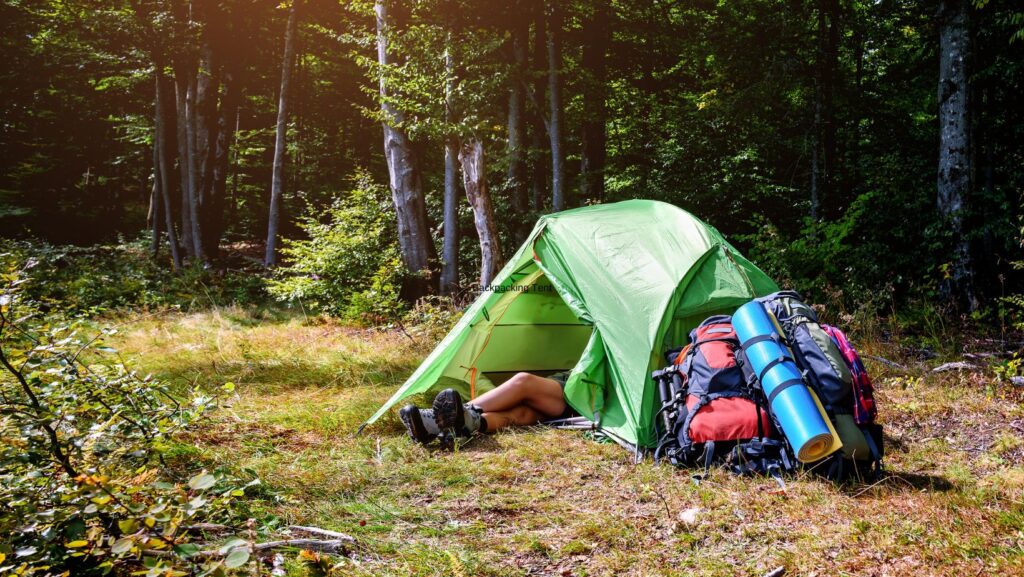When it comes to embracing the great outdoors, nothing beats the thrill of backpacking. But, every seasoned backpacker knows that the key to a successful adventure lies in the gear you carry. Among all, a lightweight backpacking tent stands out as a crucial piece.
In the world of backpacking, every ounce counts. That’s why investing in the best lightweight tent can make all the difference. It’s not just about comfort, it’s about practicality and endurance. So, how do you know which tent to choose?
This article will guide you through the top choices for lightweight backpacking tents, helping you make an informed decision. Whether you’re a seasoned hiker or a novice explorer, you’re sure to find the perfect shelter for your next adventure.
Best Lightweight Backpacking Tent
A crucial determinant of adventuring success lies in the selection of equipment, most notably, a lightweight backpacking tent. This vital component of gear meticulously upholds the mantra every ounce counts in backpacking. This section aims to enhance the understanding of backpacking tents’ significance, providing a guide to heighten the adventure experience of both seasoned and budding explorers.
 The Role of Weight in Backpacking
The Role of Weight in Backpacking
In backpacking, weight plays a vital, if not the most crucial role. It’s essential to carefully consider the mass of each piece of gear, from the footwear one chooses to bear rugged terrains to the backpack that accommodates survival necessities. An excellent instance of this is the increasing trend towards handheld GPS devices that weigh less than 8 ounces, offering detailed navigation without the burden of bulk. Among individual pieces of gear, the backpacking tent stands as a substantial contributor to overall weight. As such, considering a lightweight tent becomes crucial. For example, a two-person, double-wall tent can weigh less than 3 lbs, dramatically reducing the load on the backpacker.
Comfort vs. Convenience: Striking the Balance
While backpacking, striking a balance between comfort and convenience often presents a challenge. Comfort predominantly emphasizes gear that provides safety and protection from elements such as a substantial, warm sleeping bag or a sturdy, high-capacity backpack. For instance, a plus-sized, thermal sleeping bag may provide better insulation against cold, but could weigh up to 5 lbs.
On the other hand, convenience hints at the overall easiness, and often correlates with equipment weight. For instance, packing a lightweight tent, which can fold into a compact size, significantly enhances convenience, reducing bulk and weight. Striking a balance includes finding a lightweight tent that, despite its minuscule weight, does not compromise on space and strength, thus ensuring safety and comfort. The backpacking tent becomes a fulcrum in striking this balance, elevating its importance in any outdoor adventure.
Key Features to Look for in Lightweight Backpacking Tents
A lightweight backpacking tent may be paramount to any outdoor expedition, but finding the perfect tent involves more than just a light load. It’s important for hikers, both seasoned and beginners, to understand the key features to consider when shopping for a lightweight tent. Here, we’ll delve into three crucial attributes: Material and Durability, Weather Resistance and Seasonality, and Space-to-Weight Ratio.
Material and Durability
Backpacking tents, light or not, typically fall under two camps when it comes to materials: nylon and polyester. Both have advantages. A Nylon tent boasts impressive strength-to-weight ratios, but beware, sunlight degrades its resilience over time. Meanwhile a Polyester tent, while slightly heavier, resists ultraviolet damage better, maintaining its quality over time. Assessing the durability of the tent should not be passed over lightly. Look out for hard-wearing zips, reinforced seams and robust poles. Despite the focus on lightweight gear, endurance can’t be compromised.
Weather Resistance and Seasonality
Another vital feature to consider entails the tent’s aptitude to withstand varying weather conditions. There’s a world of difference between a tent designed for summer use and one built for three-season (Spring, Summer, Fall) or four-season (including Winter) use. A summer tent is often ultra-lightweight, designed to maximize ventilation and minimize weight. A three-season tent, on the other hand, offers sturdy protection against heavier rains and winds. A four-season tent is an all-weather palace, crafted to weather the winter’s worst.

